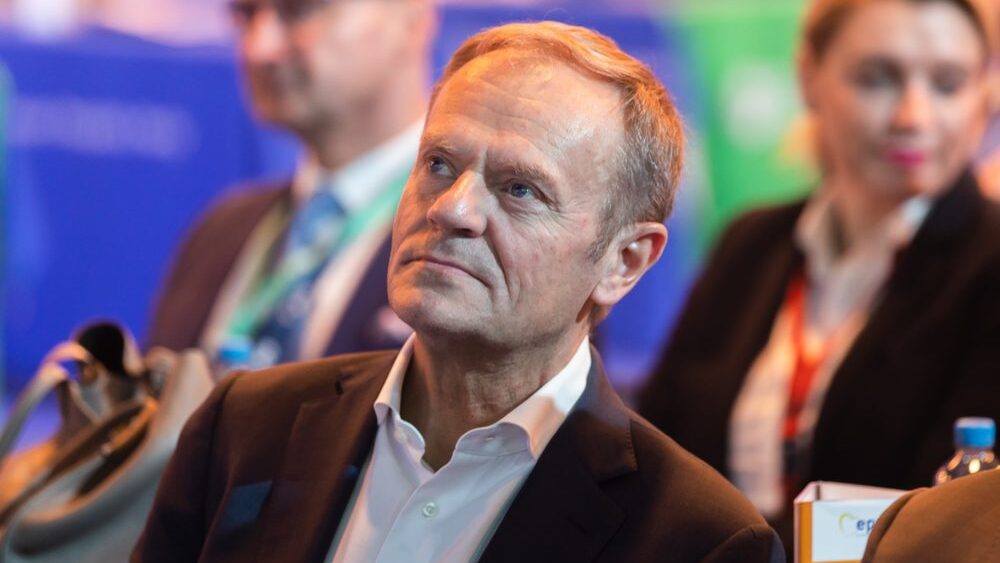
Donald Tusk
Drop of Light / Shutterstock.com
The dust is quickly settling on Poland’s weekend election, and there is a strong likelihood that the next government will be an alliance of pro-EU parties led by former European Council President Donald Tusk. The outcome is likely to be privately welcomed by Brussels elites.
Although Poland’s ruling conservative Law and Justice (PiS) party remains the largest faction within parliament, it has lost its governing majority. Some PiS officials have blamed the loss on the party’s support for Ukraine, as well as the repercussions of a collapse in agricultural prices caused by grain imports being re-routed through the country.
The potential change of government in Warsaw bodes well for the unfreezing of €55 billion in EU funding for Poland, which is currently at a standstill. The funding has been held up due to a dispute between the European Commission and PiS over alleged “rule of law” violations related to appointments in the Polish judiciary.
Tusk has already declared that his first priority, if he forms a progressive coalition, will be to unlock the funds. Poland is in line for €22.5 billion worth of direct EU funding and €34.5 billion in subsidised loans as part of Brussels’ post-COVID recovery funding initiatives.
While it may take many weeks of talks to form a new government in Warsaw, Belgian-born EU Justice Commissioner Didier Reynders said that the EU had been monitoring the results. He stated that the release of the funds would be contingent on full compliance with all the EU’s terms.
Both Hungary and Poland have been financially penalised in recent years over claims that their conservative governments have been institutionally entrenching themselves in what many have called a gross politicisation of the European Commission.
PiS had previously implemented reforms to the Polish judiciary in order to appease the Commission. This action came after the EU launched a legal challenge in February where they took Poland to the European Court of Justice, accusing them of ignoring the primacy of EU law.
The new Polish government is expected to include a multifaceted coalition of left, centrist, and agrarian parties. Meanwhile, PiS is understood to want to weaponise the office of the Polish President, which it controls, to veto legislation.
Speaking to Euronews, an anonymous source within the EU apparatus said that they expected Poland to again become a “reliable partner,” though some issues are likely to remain unresolved around Ukraine, abortion, and migration.
